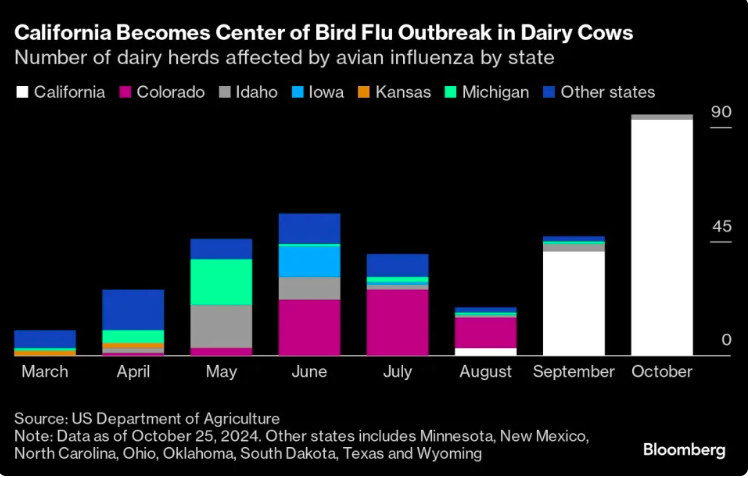Health
Australia Pioneers Psychedelic Therapy in Mental Health Treatment

Australia Pioneers Psychedelic Therapy in Mental Health Treatment
As a progressive stride in mental health treatment, Australia has carved out a unique path in the global healthcare scene. It is the first nation in the world to legitimize the use of psychedelic drugs to combat certain mental health disorders. This development has sparked considerable interest and debate among scientific and mental health communities worldwide.
Breaking Barriers: Australia Embraces Psychedelics for Mental Health
The Australian government now permits authorized psychiatrists to prescribe MDMA (also known as ecstasy) to patients grappling with post-traumatic stress disorder (PTSD), while magic mushrooms, renowned for their psilocybin content, are approved for treating specific types of depression.
This groundbreaking decision is viewed as a significant breakthrough by numerous scientists and mental health professionals. Conversely, some express reservations, arguing that the decision might be premature and its potential benefits overhyped.
The usage of these psychedelic drugs is not without risks. Users could potentially encounter a “bad trip,” an unsettling experience while under the influence of these substances. Additionally, the financial implications should be considered, as reports suggest that a single treatment course could rack up thousands of dollars.
MDMA and Magic Mushrooms: Hallucinogens Turned Therapeutics
MDMA, popularly identified as the party drug ecstasy, is a synthetic substance that induces hallucinations, boosts energy levels, enhances sensory experiences, and skews the user’s sense of time.
On the other hand, magic mushrooms, a naturally occurring substance, also induce hallucinogenic effects, primarily due to their active compound, psilocybin.
While Australia stands as the pioneer in integrating these drugs into healthcare, clinical trials are concurrently taking place in the US, Canada, and Israel. These regulations, officiated in Australia on 1 July, permit psychiatrists to prescribe MDMA for PTSD and psilocybin for treatment-resistant depression.
Revolutionising Mental Health Treatment: Not a ‘Take a Pill and Go Away’ Solution
The therapeutic application of these substances is stringently monitored, as stated by Dr Mike Musker, a mental health researcher at the University of South Australia.
He describes the new approach as a game-changer in mental health care, explaining that the treatment is likely to encompass three sessions over five to eight weeks for MDMA, with each session lasting approximately eight hours.
However, patients should curb their expectations for an instant miracle cure. Risks, such as the possibility of a bad trip or re-experiencing trauma, are inherent and warrant careful consideration.
Professor Susan Rossell, a cognitive neuropsychologist at Melbourne’s Swinburne University, underscores the importance of additional research to ascertain the long-term impacts of this therapy. In her view, the speed at which these substances were introduced for therapeutic purposes is somewhat unprecedented.
A Shocking Reclassification: Australia’s Therapeutic Goods Administration (TGA) Decision
The TGA, in a move that surprised many, reclassified MDMA and psilocybin to allow for their therapeutic use. They declared these drugs to be “relatively safe” for patients with severe mental health disorders when used within a “medically-controlled environment”. However, they remain illegal substances outside this context in Australia.
Although there are unknowns and inconclusive evidence regarding the effectiveness and safety of these substances, the TGA believes that there are “promising signs”. They argue that the potential benefits for some patients could outweigh the risks involved.
Despite the reclassification, there are currently no approved products containing MDMA or psilocybin. The new status, however, enables psychiatrists to legally access and supply certain medicines containing these substances, even without an established evaluation for safety or effectiveness.
The implications of this bold decision will be closely watched worldwide. As Australia steps into the new frontier of mental health treatment, the eyes of the world, particularly the global scientific and mental health communities, are keenly focused on the unfolding developments.
Embracing the Future, Navigating the Uncertainties
Psychedelic therapy is new and uncharted territory in mental health treatment. While it presents a promising potential, the medical and scientific communities are mindful of the uncertainties and unknowns that accompany it.
There’s a pressing need for more comprehensive research and in-depth studies to evaluate the long-term impacts, possible side effects, and the extent of the therapeutic benefits of these psychedelic substances.
The Role of the Global Community: Learning from Australia’s Experience
The global community can glean significant insights from Australia’s experience. By observing the results of this bold move, other countries might reassess their stance on the use of psychedelics in mental health treatment.
These observations could spur more clinical trials, research, and discussions on a global scale, leading to a more evidence-based approach to psychedelic therapy.
Final Thoughts: A Step Forward, A Long Road Ahead
Australia’s decision to legalize psychedelic therapy for mental health is a noteworthy shift in the realm of mental health care.
As more research unfolds, and as we continue to navigate the uncertainties, it could potentially herald a new age of innovative treatments for mental health disorders.
While there’s a long road ahead, this initial step taken by Australia might just mark the dawn of a revolutionary era in mental health treatment.
Source: HTTPS /.com/psychedelic-therapy
Health
Understanding Menstrual Allergy: What You Need to Know

Understanding Menstrual Allergy: What You Need to Know
REFERENCE:
https://www.healthwellnessjournal.com/menstrual-allergy-guide
Health
California’s Bird Flu Crisis in Cattle: Understanding the Threat to Farming and Public Health
Health
Prenatal Cannabis Use: How It Impacts Child Development, Aggression, and Cognitive Skills

Prenatal Cannabis Use: How It Impacts Child Development, Aggression, and Cognitive Skills
Cannabis use during pregnancy has garnered significant attention in recent years due to its potential impact on child development.
With growing research and anecdotal claims surfacing, many wonder whether cannabis might affect a child’s neurodevelopment, particularly in areas such as cognitive function, behavioral tendencies, and social adaptability.
As prenatal cannabis exposure becomes increasingly examined, understanding its influence on childhood aggression and cognitive deficits has become crucial.
Here, we delve into the latest research on prenatal cannabis use and its implications for child development, highlighting key takeaways for parents and healthcare providers alike.
The Rise in Prenatal Cannabis Use
In recent years, cannabis legalization in various states and countries has led to a significant increase in use, even among pregnant women.
While some mothers-to-be use it to alleviate nausea or reduce anxiety, the potential risks to the developing fetus are often understated or misunderstood.
Studies suggest that cannabis use during pregnancy may disrupt fetal neurodevelopment, which can have long-lasting effects on a child’s behavior and cognitive abilities.
How Cannabis Affects Fetal Brain Development
During pregnancy, a baby’s brain undergoes rapid and complex development. Introducing cannabis, particularly the active compound THC (tetrahydrocannabinol), into a pregnant body can interfere with this process.
THC can cross the placenta, reaching the fetal brain and binding to cannabinoid receptors.
These receptors are crucial for normal brain development, affecting neuron growth, brain structure, and the overall wiring of neural connections.
The Role of Cannabinoid Receptors in Neurodevelopment
Cannabinoid receptors, part of the endocannabinoid system, play a pivotal role in prenatal brain development.
The interference caused by external cannabinoids like THC can disrupt normal brain function, potentially leading to cognitive and behavioral issues in childhood and beyond.
Research shows that children exposed to cannabis in utero may have lower scores in areas of memory, attention, and decision-making—skills that are essential for cognitive development and emotional regulation.
Studies on Cannabis and Childhood Aggression
One of the most concerning findings in recent research is the potential link between prenatal cannabis exposure and increased aggression in children.
Children exposed to cannabis during gestation may be more prone to aggression and other behavioral issues as they grow. Such behaviors may stem from altered neurotransmitter function and disrupted brain connections caused by exposure to THC.
Potential Behavioral Outcomes
Cannabis use in pregnancy has been associated with a range of behavioral concerns in young children.
These may include:
- Increased Aggressiveness: Children may exhibit more aggressive behaviors, which can hinder social interactions and pose challenges in school and other social environments.
- Attention Deficit Issues: Prenatal cannabis exposure has also been linked to attention-deficit disorders, making it harder for children to concentrate or complete tasks.
- Impulsivity and Hyperactivity: Children may show higher levels of impulsivity, leading to difficulties in controlling their behavior in structured settings.
Cognitive Deficits Associated with Prenatal Cannabis Use
The cognitive impacts of prenatal cannabis exposure often manifest in deficits related to memory, executive function, and problem-solving skills.
In many cases, these deficits become evident as children grow and face increasingly complex cognitive tasks at school and in social situations.
Memory and Learning Impairments
Children exposed to cannabis during pregnancy may have difficulties in memory retention and recall. Memory is a fundamental skill that impacts learning, decision-making, and emotional regulation.
When prenatal cannabis exposure disrupts memory development, children may struggle academically and face challenges in forming and maintaining relationships.
Executive Function Challenges
Executive functions, including decision-making, planning, and problem-solving, are essential for daily life.
Cannabis exposure in utero has been linked to impairments in these areas, making it harder for affected children to succeed in academic and social settings.
These challenges can persist into adolescence and adulthood, potentially impacting career choices, interpersonal relationships, and overall quality of life.
Impact on Social Development
Children who experience neurodevelopmental impacts from prenatal cannabis exposure may struggle in social situations.
Aggression, impulsivity, and attention deficits can hinder their ability to interact positively with peers, teachers, and family members.
Additionally, the cognitive deficits associated with prenatal cannabis exposure may impair their ability to understand social cues, leading to misunderstandings and conflicts.
Long-Term Effects on Social Relationships
Research suggests that the effects of prenatal cannabis exposure on social behavior can extend into adolescence and beyond.
Children who exhibit aggressive behavior or struggle with attention-related issues may find it challenging to form close friendships or maintain healthy relationships.
In some cases, this can lead to feelings of isolation and low self-esteem, which may increase the risk of mental health issues later in life.
Gender Differences in Cannabis Exposure Outcomes
Interestingly, some studies indicate that the effects of prenatal cannabis exposure may differ between boys and girls.
Boys, for instance, may exhibit more noticeable signs of aggression and hyperactivity, while girls may experience cognitive challenges such as attention deficits.
Understanding these gender-specific differences can help healthcare providers tailor interventions and support strategies to meet each child’s unique needs.
Strategies for Pregnant Women Considering Cannabis Use
While cannabis might seem like a natural remedy for managing pregnancy symptoms, its potential impacts on fetal development suggest the need for caution. Pregnant women considering cannabis use should discuss it with their healthcare provider to understand the risks and explore safer alternatives.
Alternative Remedies for Pregnancy Symptoms
Many healthcare providers recommend alternative approaches to managing pregnancy symptoms, such as:
- Acupuncture or Acupressure: Helpful for managing nausea and anxiety.
- Mindfulness and Relaxation Techniques: These can aid in stress reduction and mood regulation.
- Physical Activity: Engaging in prenatal yoga or light exercises can help reduce stress and improve overall well-being.
Ongoing Research and Future Perspectives
Researchers are still uncovering the full spectrum of prenatal cannabis exposure’s effects on child development. As more data becomes available, guidelines may evolve to provide clearer recommendations for pregnant women.
Currently, the precautionary approach is widely endorsed by medical professionals due to the growing body of evidence suggesting that prenatal cannabis use can negatively impact child neurodevelopment.
The Importance of Parental Awareness and Support
Understanding the risks associated with prenatal cannabis use is vital for expecting parents and families. By becoming informed, parents can make healthier choices for themselves and their unborn children.
Additionally, recognizing the potential impacts on child development can help families seek early interventions if needed, supporting better developmental outcomes.
Conclusion
The evidence suggests that prenatal cannabis exposure may contribute to increased aggression, cognitive deficits, and social challenges in children.
As cannabis becomes more accessible, the importance of understanding its potential risks during pregnancy cannot be overstated.
Pregnant women should consult with their healthcare providers about alternative symptom management methods to minimize any potential risks to fetal brain development.
Through informed decision-making, expecting parents can better support the long-term health and development of their children.
Frequently Asked Questions (FAQs)
1. Can cannabis use during pregnancy cause lasting effects on a child’s brain?
Yes, research suggests that prenatal cannabis exposure may lead to long-term cognitive and behavioral challenges, including memory deficits and aggression.
2. Are there safe alternatives to cannabis for managing pregnancy symptoms?
Yes, many healthcare providers recommend alternatives such as acupuncture, mindfulness, and prenatal yoga, which can effectively manage symptoms without posing risks to fetal development.
3. Do all children exposed to cannabis during pregnancy experience cognitive or behavioral issues?
Not all children will exhibit these issues, as outcomes can vary based on factors like frequency of exposure, genetic predispositions, and environmental influences. However, studies show a higher likelihood of cognitive and behavioral challenges.
4. Are there any differences in the impact of prenatal cannabis exposure between boys and girls?
Yes, research suggests gender-specific differences; boys may show more aggression, while girls may experience greater cognitive deficits, such as attention challenges.
5. What are some potential long-term social impacts for children exposed to cannabis in utero?
Children exposed to cannabis during pregnancy may face difficulties with social interactions and relationship-building due to aggression or attention deficits, potentially impacting self-esteem and mental health into adulthood.
References:
https://neurosciencenews.com/cud-pregnancy-aggression-neurodevelopment-27950/.
-

 Trending Stories1 year ago
Trending Stories1 year agoCDC: 1 in 4 Americans Still COVID-Free by End of 2022
-

 Health5 years ago
Health5 years agoMeghan Trainor Shares Motivational New Song ‘Blink’
-

 Health6 months ago
Health6 months agoHow Do Pawpaw Seeds Support Cardiovascular Health?
-

 Health2 years ago
Health2 years agoHow Long Does Monkey Pox Last Before It Surfaces in the Body?
-

 Health3 years ago
Health3 years agoWhat Causes Swollen Body? Understanding Edema and its Triggers
-

 Health3 years ago
Health3 years agoNutrition and the Importance of a Fitness Program – 3 Things to Know
-

 Health3 years ago
Health3 years ago5 Weird Reasons Why Pimples Disappear After Marriage
-

 Health2 years ago
Health2 years agoHealth Benefits Of Pawpaw Seed? 7 Things To Know






